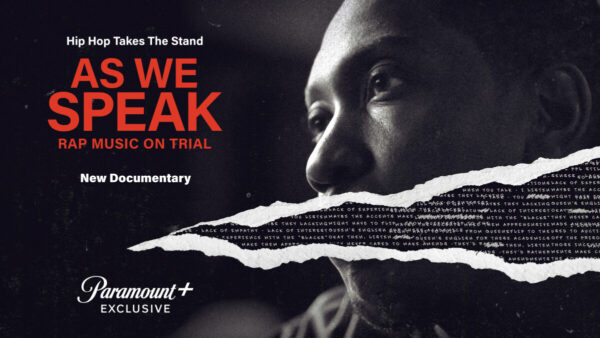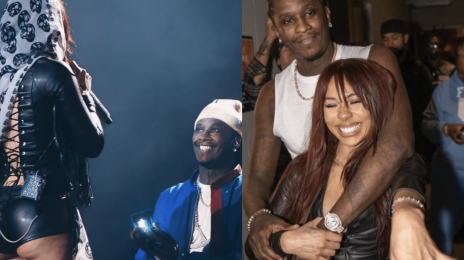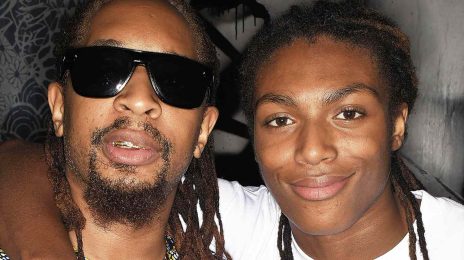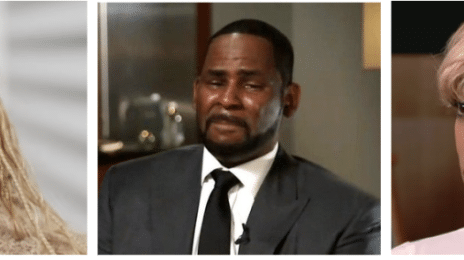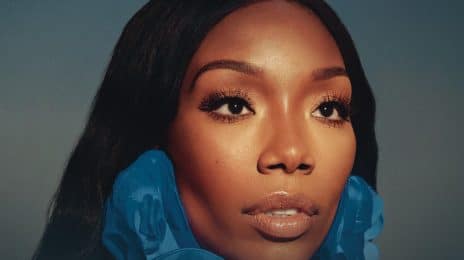Rap music has long dominated the Pop cultural landscape – birthing some of the biggest stars and biggest movements in history.
Parallel to its popularity, however, there has been an increasing legal spotlight on its lyrics.
Indeed, high-profile court cases have seen musical bars lead to artists being put behind bars. A reality that has ignited ample debate around how just such a practice is.
Paramount+ shines a light on the discourse in the powerful new documentary ‘As We Speak: Rap Music on Trial.’
Helmed by J.M. Harper, the powerful special follows Bronx Rap artist Kemba as he delves deep into the growing weaponization of Rap lyrics in the US criminal justice system and beyond.
That Grape Juice caught up with both Harper and Kemba, who opened up in earnest about the climate around Rap lyrics, the impetus for the documentary, and what the future holds.
Join us below…
That Grape Juice: Was there anything that surprised you about what you learned during the process of piecing together the documentary?
Kemba: Yeah, so much. From learning all the different ways our words can be used to influence a judge and jury, to how people in my own life have so many different opinions on the topic (usually based on how they feel about rap), to all the different parts of the filmmaking process. It was a lot.
J.M. Harper: Definitely. I was surprised to learn that the struggle of black lyrics in America stretches back for centuries, and the history makes a fascinating path from the words of our ancestors to Rap lyrics today.
That Grape Juice: What is your take on the discourse surrounding Rap music mirroring real life or simply being entertainment (not dissimilar to a movie)?
Kemba: Really, it’s both of those things and more. Do you think about the things that you’re going to do? Yes. Do you think about things that you’ll never do? Of course. And it can come from anywhere and everywhere, especially when the goal is to entertain. It’s wild to think that we can boil it down to one thing when there are so many different people taking part in it.
J.M. Harper: The question implies a binary that doesn’t really exist. Rap lyrics are like a quantum physical reality in that they can be both things – real and unreal, fiction and nonfiction. If you think of them the same way we think of dreams or even memory, it’s not hard to see how difficult that question is and how impossible it is to simplify, especially in a courtroom.
That Grape Juice: What advice would you give to the rappers of tomorrow about navigating an era where their lyrics can increasingly be used against them?
J.M. Harper: As artists, we hold a mirror up to society, and the moment we take it down, the culture starts to die.
Kemba: The most important thing I could do is help clear the runway for people to be able to express themselves without that threat being a real one. I wouldn’t tell anyone to censor themselves. We want the clearest channel possible between thoughts, feelings and the art. Nobody predicts this sort of thing happening to them, but if I had to give advice, I’d tell them what Bun B told me – don’t give them the tools they can use to destroy you.
That Grape Juice: What do you want viewers to take away from watching ‘As We Speak: Rap Music on Trial’?
Kemba: I want people who see the film to understand that this isn’t just happening to people who make music for a living, it’s happening to people with jobs and families and maybe artistic aspirations, like so many people have. The label of “rapper” is used very loosely as a trigger for biases and to bring someone’s character into question. Once you pull back that veil, you see it’s just a covert way to criminalize young black and brown people.
J.M. Harper: I want viewers to ponder this issue from the perspective of the artists rather than just the point of view of the pundits and criminal legal system that we see on TV.
That Grape Juice: This is such an important documentary on so many fronts: topically, culturally, and legally. What do you hope its ultimate impact will be?
Kemba: I’m hoping we can either stop this from happening with legislation or put up enough guard rails so that it’s only allowed when the words are saying exactly what happened, where, when etc. But until then, hopefully this informs the public so that if you’re having a conversation in New York City or on jury duty somewhere in Montana, you can tell the difference.
J.M. Harper: Political and cultural change. And for the world to embrace a new language in the documentary.
*********
‘As We Speak: Rap Music on Trial’ is Available to Stream on Paramount+
*********

